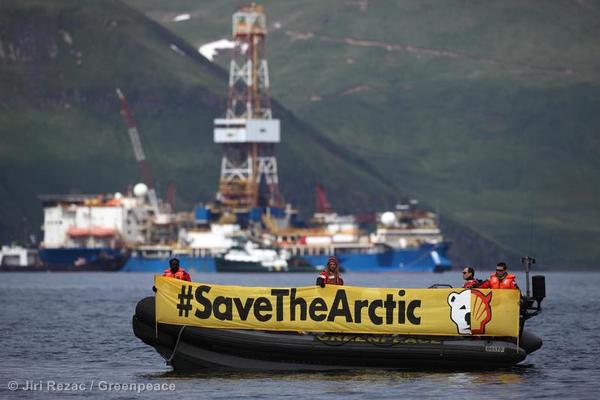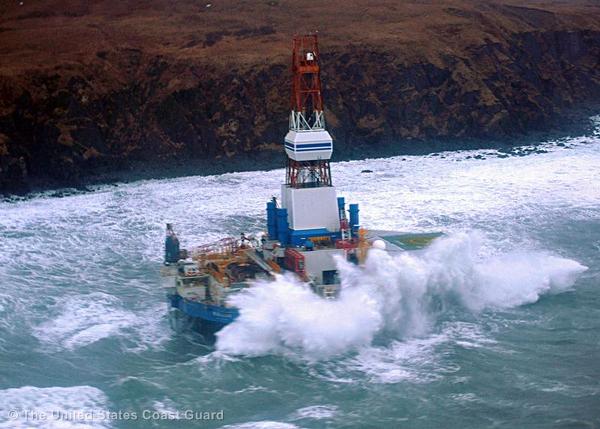Shell Oil is trying to buy our good will by supporting events like JazzFest in New Orleans. Thats why we were on the ground at JazzFest over the weekend to let Shell know that getting down to good music is not the same thing as advocating drilling in the Arctic.
When a big company expects its practices to cause public outcry, it tries to build what is known as a social license. If your project is liable to take a heavy environmental toll, you can do the right thing and avoid those harms. Or you could try to be slick and buy the approval of either affected local communities or the broader public. That way you can make a case that the bad things your company is about to do have some level of social acceptance. Its sleight of hand as old as marketing itself.

Greenpeace activists protest at Shell drillship ‘Noble Discoverer’ anchored near Dutch Harbor in Unalaska.
Right now, Shell Oil is out there baldly seeking social license for its operations, which, as we all know, are contributing to climate change, oil spills, and environmental degradation.
One of Shells nastiest hopes is to begin extracting oil in the Arctic, where any plans for offshore drilling come along with a very real expectation of a catastrophic oil spill. The Arctic is remote, its waters are harsh and icy, and its days and nights frigid. Drilling there is a lot more difficult than drilling in the warm, relatively easy Gulf of Mexico, and we all know what happened there.
Still, four years after the BP Deepwater Horizon disaster, only an estimated 8% of all oil spilled has been cleaned up.
Not long ago, Shells early forays into drilling up north led to a huge debacle and public relations nightmare, when one of its ancient rigs was stranded on an Alaskan shore. Workers had to be evacuated by helicopter, and a Coast Guard report blamed Shells risk-taking, tax-evading ways for the mess.

Waves crash over the Shell’s drilling unit ‘Kulluk’ where it sits aground on the southeast side of Sitkalidak Island, Alaska, January 1, 2013.
The thing is, the Arctic is also unique, magnificent, and one of the most delicate ecosystems on Earth. To extract oil there, Shell will need formal permission from regulators and politicians. Politicians will only sign off if this if they think such a thing is electorally supportable.
So, Shell needs a social license.
Shell has invested a lot of capital in Arctic drilling. Because of its tendency for bungling, however, its ambitions have been repeatedly thwarted by litigation, non-compliance with requirements, weather events, and technical failures. Still, Shell has declared it intends to get in there and drill by 2015.
Of course, the projects safety and environmental safeguards in particular its preparedness to deal with spills have been roundly challenged, exposing both the projects internal lack of preparation and the significant risk.
Shell is well aware of the oil spills risksand potential for environmental and political disaster. So it has to engineer thesocial and political circumstances to promote its investments in the Arctic. One tried and true way of creating a social license is by sponsoring cultural events like the New Orleans Jazz Festival. If Shell can partner with brands and institutions that are considered clean and credibleto produce good, wholesome fun, it ups its chances of going into the Arctic and making a mess.
Tobacco companies used to do the same kind of thing, but people eventually saw through that, too.
Big oil cannot buy respectability by dropping a tiny percentage of its billions into the arts. Greenpeace showed up at JazzFest to directly communicate with festival goers and to Shell that enjoying good music doesnt necessarily mean sponsoring environmentally destructive schemes.
Its time Shell faced the music: theres no way of greening up Arctic oil drilling.




